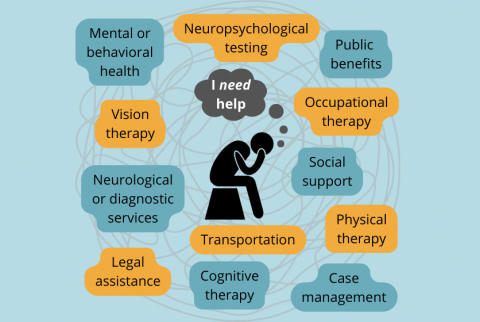Learn more
Senate Bill 420 will create a Brain Injury Resource Navigation program in Oregon that will connect survivors of brain injury with the help they need. The program will provide a warm hand-off between the brain injury survivor and the necessary supports and services. Person-to-person follow-up will take place at regular intervals to encourage integration of these services into their daily life.
Over 84,000 Oregonians currently live with chronic, long-term effects of brain injury (CDC Report to Congress, 1999). In 2020, 13,544 Oregonians sought care at a hospital or emergency room following a brain injury. This number does not include those who sought help from urgent care, their primary care physician, or did not seek care (OHA, 2022). Every day people with brain injury struggle to access the crucial services they need to rebuild their lives.
Principles of equity and inclusion will guide the development of Brain Injury Resource Navigation programs, ensuring that underserved populations throughout Oregon are prioritized. The inherent challenges faced by Oregon’s underserved populations magnify the existing barriers between a brain injury survivor and access to needed supports and services. Brain Injury Resource Navigation will help minimize those challenges.
Areas of support will include, but not be limited to, the following:
- Medical and therapeutic support
- Employment services
- Housing services
- Disability services
- Veteran services
- Social support
- Food stability
- Caregiver respite
For too long Oregonians with brain injury have struggled without a program to offer them guidance and resources. SB 420 will resolve this and bring Oregon in line with other states that offer similar programs. Evidence-based data demonstrates that Brain Injury Resource Navigation improves the lives of brain injury survivors and their families. It will save the state significant resources as those served will see increased quality of life, ability to reintegrate into activities of daily living, and return to employment. It is a true win-win scenario.


